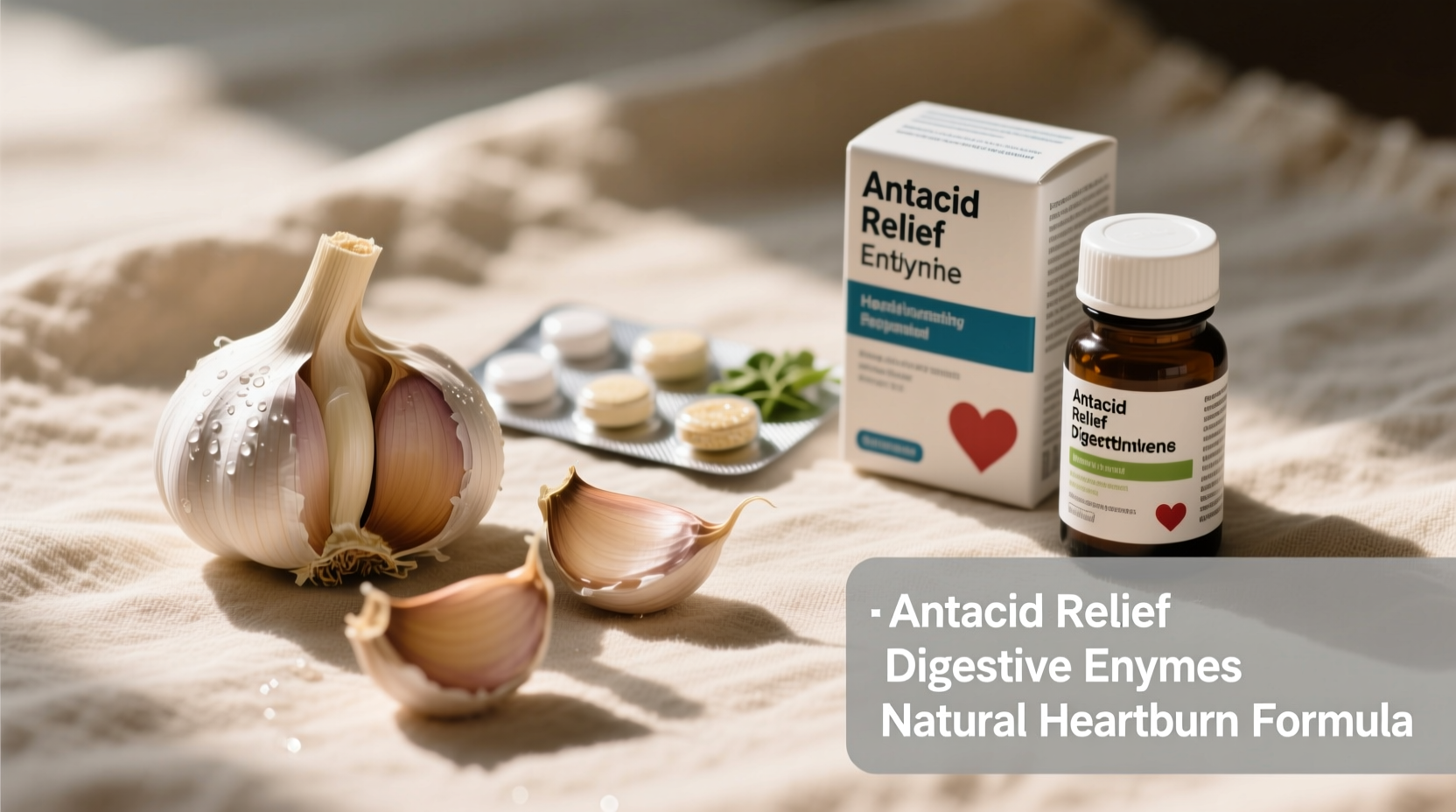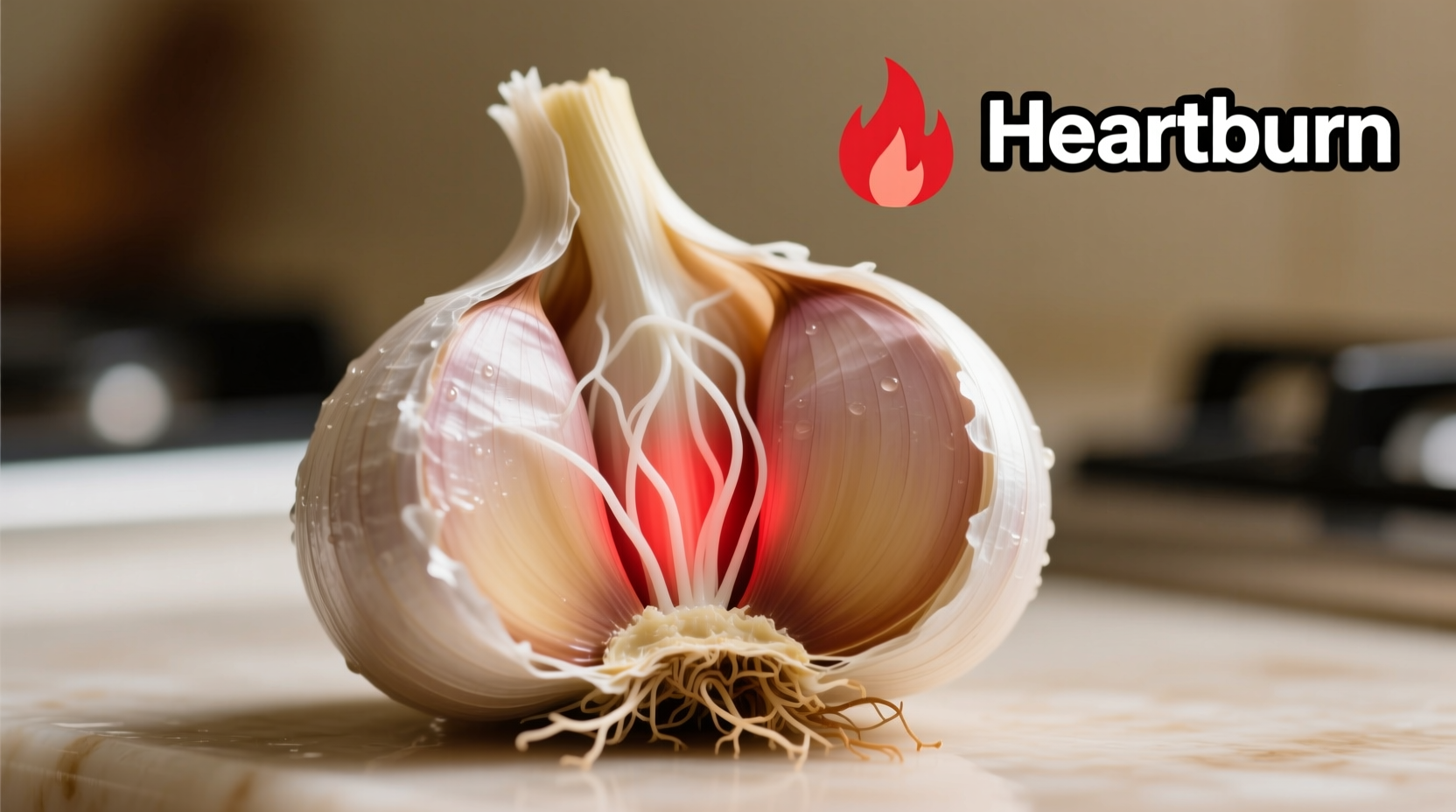For garlic lovers who also battle heartburn, finding the right balance can feel like a culinary tightrope walk. As someone who's spent years exploring how spices interact with our physiology, I've seen countless home cooks unnecessarily eliminate garlic from their diets when simple adjustments could let them enjoy this flavorful ingredient safely.
The Science Behind Garlic and Heartburn
Garlic contains allicin, the compound responsible for both its distinctive flavor and potential to trigger heartburn. When you consume raw garlic, allicin forms as the clove is crushed or chopped, activating chemical reactions that can:
- Relax the lower esophageal sphincter (LES), allowing stomach acid to flow back into the esophagus
- Increase gastric acid secretion
- Irritate the stomach lining in sensitive individuals
According to research published in the Journal of Neurogastroenterology and Motility, allium vegetables like garlic rank among the top dietary triggers for gastroesophageal reflux disease (GERD), affecting approximately 30% of GERD sufferers significantly.
| Garlic Form | Allicin Content | Heartburn Risk | Recommended for Sensitive Individuals |
|---|---|---|---|
| Raw, crushed | Very high | High | No |
| Cooked (briefly) | Moderate | Moderate | Limited |
| Cooked (thoroughly) | Low | Low | Yes |
| Aged garlic extract | Negligible | Very low | Yes |
Who's Most at Risk for Garlic-Induced Heartburn?
Not everyone experiences heartburn from garlic. Your susceptibility depends on several factors:
- Pre-existing GERD or hiatal hernia: Those with diagnosed acid reflux conditions are more likely to react
- Genetic factors: Variations in how your body processes allium compounds
- Medication interactions: Certain medications that relax the LES compound garlic's effects
- Consumption method: Raw garlic poses greater risk than cooked forms
The National Institute of Diabetes and Digestive and Kidney Diseases (NIDDK) notes that dietary triggers vary significantly between individuals, which explains why some people can eat garlic liberally while others experience symptoms after minimal exposure. Understanding your personal tolerance threshold is key to managing garlic heartburn effectively.

Practical Strategies to Enjoy Garlic Without Heartburn
Before eliminating garlic from your diet entirely, try these evidence-based approaches that have helped many of my cooking students continue enjoying garlic's flavor and health benefits:
Modify Your Preparation Method
Cooking garlic thoroughly transforms its chemistry. When garlic is cooked slowly at lower temperatures (below 140°F/60°C), the allicin breaks down into less irritating compounds while preserving flavor. Try:
- Roasting whole bulbs to create sweet, mellow garlic
- Adding garlic late in the cooking process for sauces and soups
- Using garlic-infused oil instead of raw garlic
Pair with Protective Foods
Certain foods can buffer garlic's effects on your digestive system:
- Combine garlic with alkaline foods like leafy greens or avocado
- Eat garlic as part of a complete meal rather than on an empty stomach
- Include ginger in the same dish, which may counteract some digestive irritation
Consider Timing and Quantity
How much and when you consume garlic matters significantly:
- Avoid garlic within 3-4 hours of lying down or bedtime
- Start with small amounts (1/4 clove) to assess tolerance
- Gradually increase as your system adapts
When Garlic Might Actually Help Heartburn
Interestingly, research presents a complex picture. While raw garlic often triggers heartburn, some studies suggest aged garlic extract may actually support digestive health. A 2020 review in Nutrients indicated that aged garlic's antioxidant properties might help protect the gastric mucosa over time.
This explains why many traditional medicine systems use garlic preparations for digestive issues, though they typically employ specific preparation methods that reduce the irritating compounds. The key distinction lies in the preparation method and form of garlic consumed.
Warning Signs That Warrant Medical Attention
While occasional heartburn after garlic consumption is common, certain symptoms indicate you should consult a healthcare provider:
- Heartburn occurring more than twice weekly
- Pain that wakes you from sleep
- Difficulty swallowing
- Unintended weight loss
- Chest pain that radiates to your arm or jaw
These could indicate more serious conditions like erosive esophagitis or Barrett's esophagus, which require professional medical evaluation rather than dietary adjustments alone.
Garlic Heartburn Myths vs. Facts
Let's clarify some common misconceptions about garlic and heartburn:
- Myth: All garlic products affect everyone the same way
Fact: Processing methods dramatically alter garlic's impact on digestion - Myth: If garlic causes heartburn, you must eliminate it completely
Fact: Most people can find a tolerance threshold with proper preparation techniques - Myth: Garlic supplements are always safer than fresh garlic
Fact: Some supplements contain concentrated allicin that may worsen symptoms
Building Your Personal Garlic Tolerance
Through my work teaching cooking techniques to those with digestive sensitivities, I've found that developing a personalized approach works best. Start by keeping a food diary tracking:
- Garlic preparation method (raw, roasted, sautéed)
- Amount consumed
- Timing relative to meals and bedtime
- Any accompanying foods
- Resulting symptoms and severity
After 2-3 weeks, patterns will emerge showing your personal tolerance threshold. Most people discover they can enjoy garlic in specific forms or quantities without triggering heartburn.
Final Thoughts
Garlic's heartburn-triggering reputation shouldn't condemn this culinary treasure to your spice rack's exile. With the right preparation techniques and consumption strategies, most people can continue enjoying garlic's distinctive flavor and health benefits. The key is understanding how garlic affects your unique physiology and adjusting accordingly—rather than adopting a one-size-fits-all approach that unnecessarily limits your culinary enjoyment.











 浙公网安备
33010002000092号
浙公网安备
33010002000092号 浙B2-20120091-4
浙B2-20120091-4